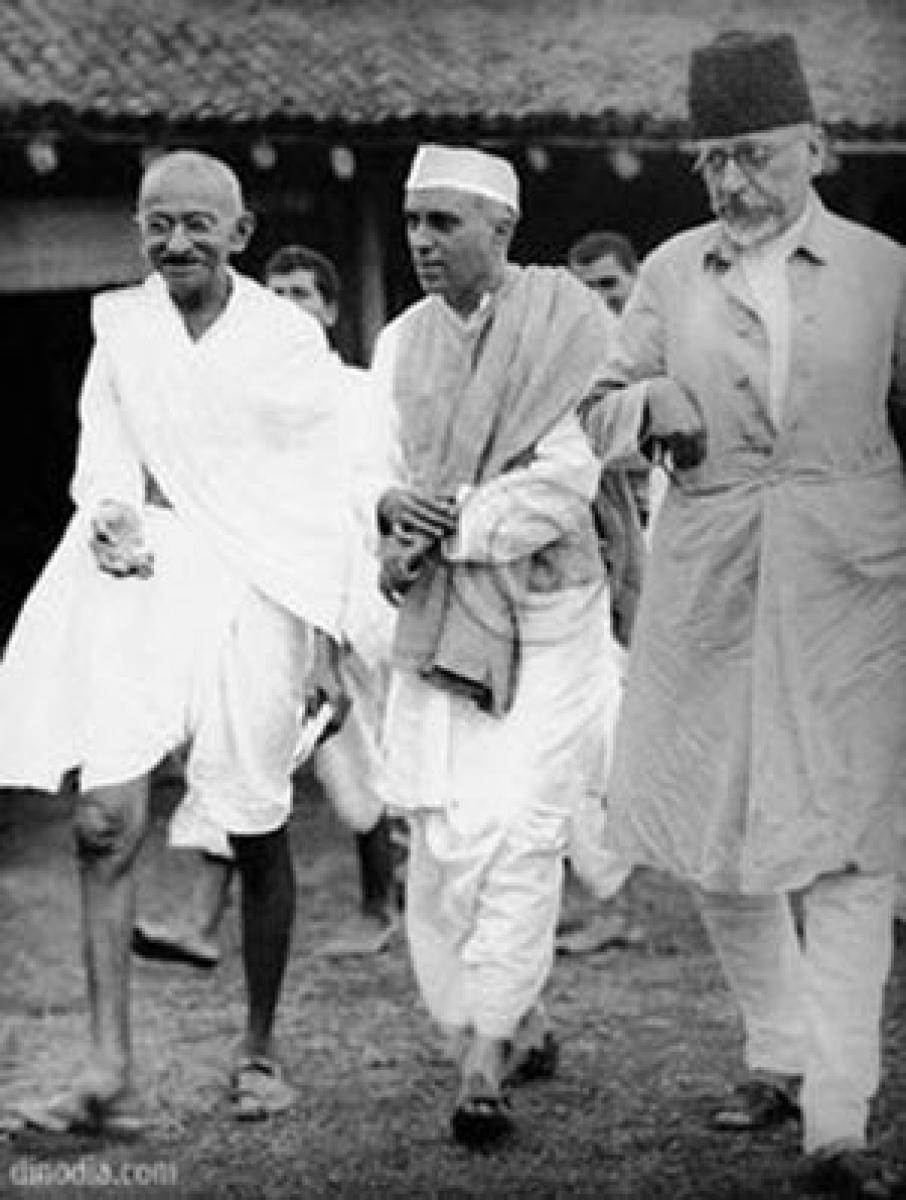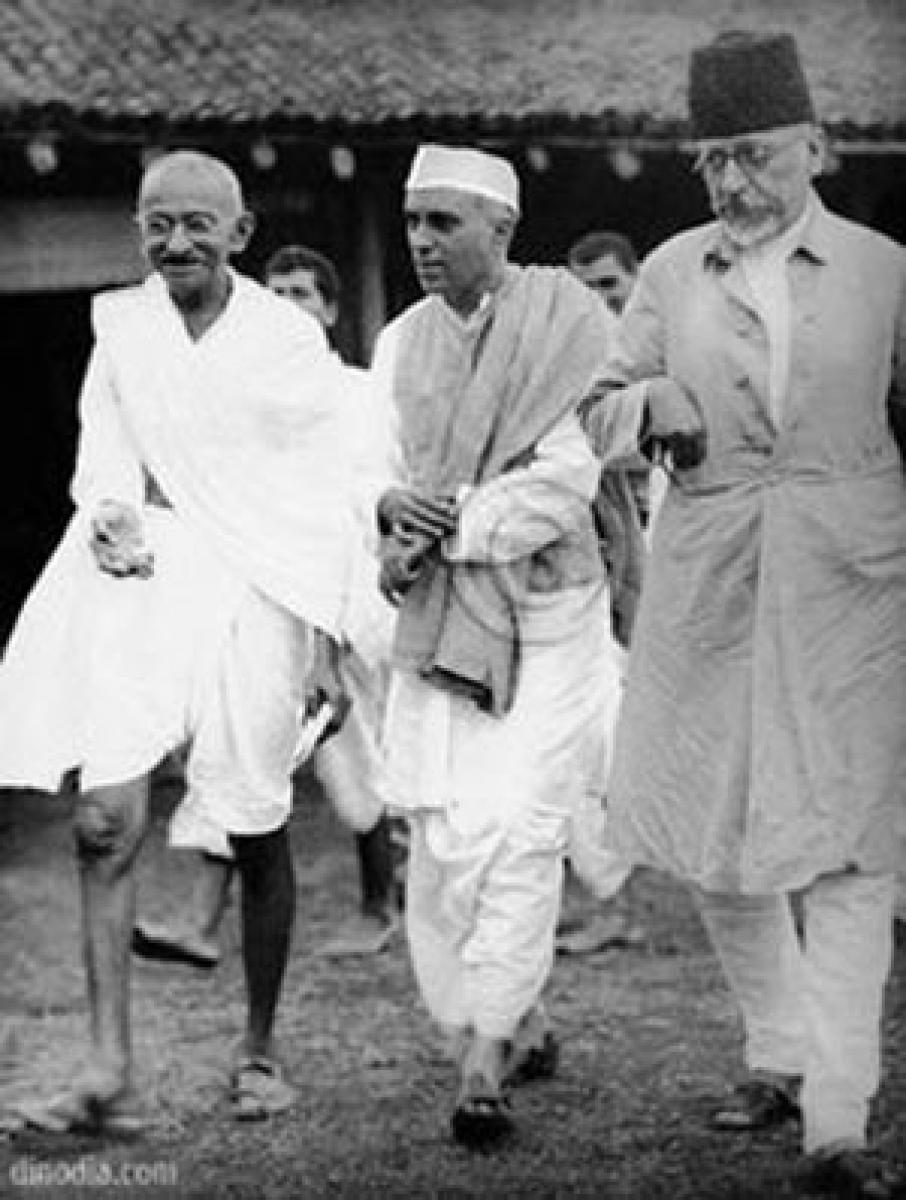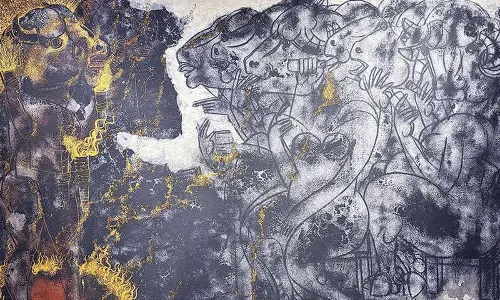Reflections of Sufism in Maulana’s life

Maulana Abul Kalam Azad who was born this day (November 11) 127 years ago, in his concepts of Tarjuman-ul-Quran and Wahdat-e-Deen reflected what actually is the matrix not only of Sufism but even the underlying base of the philosophy of all world religions only after being enlightened by the views of Sufi Sarmad.
 Maulana Abul Kalam Azad who was born this day (November 11) 127 years ago, in his concepts of Tarjuman-ul-Quran and Wahdat-e-Deen reflected what actually is the matrix not only of Sufism but even the underlying base of the philosophy of all world religions only after being enlightened by the views of Sufi Sarmad.
Maulana Abul Kalam Azad who was born this day (November 11) 127 years ago, in his concepts of Tarjuman-ul-Quran and Wahdat-e-Deen reflected what actually is the matrix not only of Sufism but even the underlying base of the philosophy of all world religions only after being enlightened by the views of Sufi Sarmad.
Whenever I think of Maulana Azad, I think not of a politician, but of a statesman who is more than a statesman — a thinker-statesman. He had not only a concept of an Indian nation but also of civilization and a concept of corruption-free world.
Because Azad possessed such an enlightened worldview, he unhesitatingly advocated the causes of Hindu-Muslim unity, social progress, religious tolerance, spread of modern knowledge, individual liberty and above all, educational reforms. He had the courage of a statesman for initiating reforms. However, he did not live long enough to see his ideas implemented.
Few know the fact that the Maulana was an ardent admirer of Sarmad, the naked saint who was beheaded by emperor Aurangzeb. Sarmad, through his poetry comes out cleaner, loyal, faithful and truthful to God:
Sarmad! Gila ikhtesar mibayad kard Yak kaar az ein do kaar mi bayad kard Ya tan be raza-ai dost mi bayad daad Ya jaan barahash nisaar mi bayad kard (O Sarmad! Shorten your complaint Of two choices, take one; either surrender Your body to the will of your friend Or offer to sacrifice your soul)
Azad under the light of Sarmad’s philosophy wrote that the path of God in every corner of the world was identical — one. It cannot be more than one or different than a uniform one. Stated Azad: “The Holy Quran tells us that all the prophets God sent, no matter at what time or in what part of the world, they all gave the same lesson — Aalamgir Qanun-e-Sa’adat— meaning God’s universal law of felicity. This law is the worship of one God through aamal-e-saaleh that is deeds of piety.”
Sarmad, according to Azad, in his state of ecstasy, lost all his wealth and worldly possessions with the only shackles remaining in the form of clothes that also he threw away totally to become free from worldly concerns. That’s why he said: “It is not the fortune of the faint-hearted to suffer in love; suffering is for those who walk in the flames of love.”
Azad’s essay on Sarmad’s poetry is imbued with the spirit of universal humanism owned by the Sufi thinker. Azad at one place relates, “Although religion is meant to unite people and show them the path of righteous living, it is ironical that frequently violence is perpetrated against innocent men, women and children in the name of religion. No religion approves prejudices, hatred, extremism and violence.”
An interesting anecdote from Maulana Azad’s life shows the impact of Sarmad. While he was donning a patched shervani(long coat), Maulana Azad’s private secretary Ajmal Khan pointed that he was to deliver a speech before the Prime Minister and others on the occasion of the inauguration of the Sahitya Akademi.
Maulana Sahab shot back with a crisp reply in his sonorous voice, “Ajmal Sahab, no one will look at my shervani but everyone will listen what I speak!” At that time, as per the laundry records of Maulana Azad, he possessed only six shervanis (two of them had patches on them!). He owned a very limited wardrobe primarily because he could not afford to get more.
Similarly, while Maulana Azad was residing at his Ballygaunge Circular Road house of Kolkata, Mahatama Gandhi and Pandit Nehru went to see him. This was during the time of freedom struggle. Maulana Azad was writing something and his kurta (casual wear) was torn at the shoulder. Gandhiji understood and he said, “Maulana Sahab! Agar kuchh mali bohran hai to bila jhijak bata dein” (If there is any economic crisis, kindly tell without hesitation).” At that Azad affably smiled and effusively refused the offer. He said that he loved to be a poor man.
Though Maulana Azad’ interests were kaleidoscopic and his genius versatile, he enjoyed fame in the field of Urdu journalism as rightly pointed out by Shakeel Shamsi, editor Inquilab, Delhi. He was not a pseudo-secular intellectual like today’s politicians but a committed patriot wedded to the principles of communal harmony.
Through his fiery eloquence and revolutionary writings first in Al-Hilal and later in Al-Balagh in Calcutta during 1912 and 1916, Maulana Azad roused the Indians from their stupor and political apathy. Although he started his career as an aalim (religious leader), his faith in nationalism, as Mahatama Gandhi described it, was as robust as his faith in Islam. (The author is a commentator on social and religious issues and a grandnephew of Maulana Azad. He can be reached at [email protected])
By Firoz Bakht Ahmed











